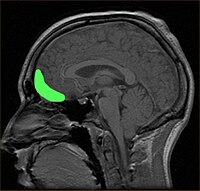
Photo from wikipedia
This study examines two indicators of developmental level (testosterone and grade) as moderators of the effects of a single-session incremental theory of personality intervention on both traditional and online aggressive… Click to show full abstract
This study examines two indicators of developmental level (testosterone and grade) as moderators of the effects of a single-session incremental theory of personality intervention on both traditional and online aggressive behaviors. A sample of 535 Spanish adolescents (boys: 50%; age: 12-17 years) participated in a double-blind, randomized controlled trial. Participants were randomized to receive the incremental theory of personality intervention or an alternative educational control condition. The intervention consisted of teaching the belief that people can change. Aggressive behaviors were measured at baseline, one-week posttest, and six-month and twelve-month follow-ups. Testosterone level moderated the effectiveness of the intervention for online aggressive behavior so that, among adolescents with low and medium testosterone levels, those in the control group increased online aggressive behavior, whereas adolescents receiving the intervention remained at similar levels of perpetration. Grade moderated the effectiveness of the intervention on both forms of aggressive behavior, being only effective in Grade 8. Overall, the findings indicate that some preventative interventions can be more effective among adolescents with lower levels of development.
Journal Title: Journal of interpersonal violence
Year Published: 2020
Link to full text (if available)
Share on Social Media: Sign Up to like & get
recommendations!